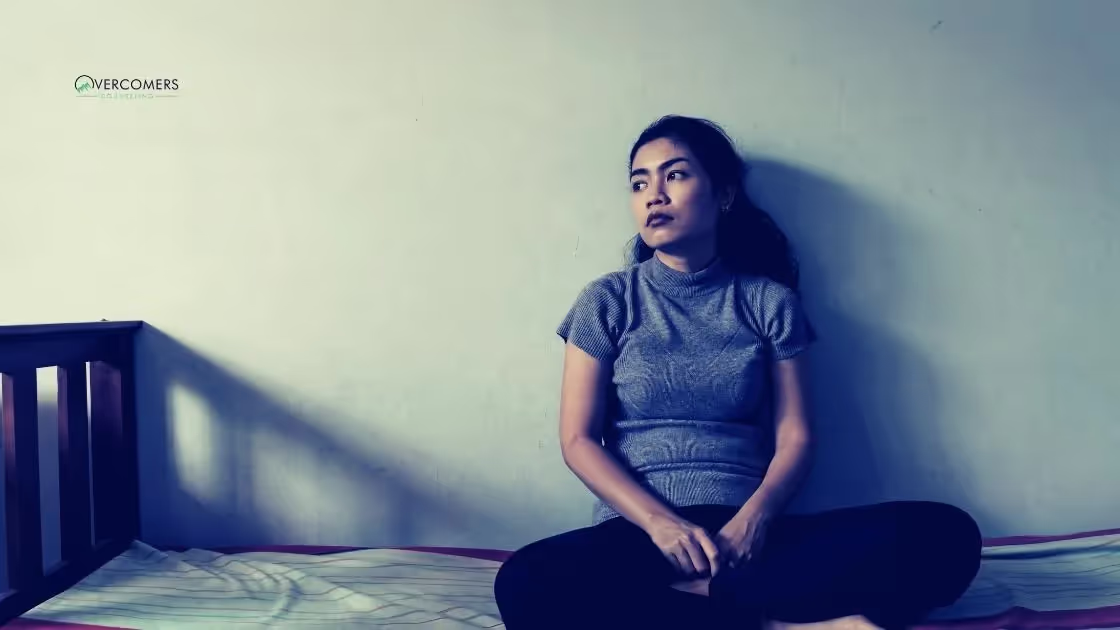Melancholic Depression is also known as Melancholia is a type of major depressive disorder (MDD) characterized by sadness.This type of depression is more...

Melancholic Depression is also known as Melancholia is a type of major depressive disorder (MDD) characterized by sadness.
This type of depression is more common in middle-aged and older adults than in children and adolescents.
This disorder affects many areas of life.
People with major depressive disorder frequently lose interest in previously appreciated activities.
They struggle to get through the day, with this kind of depression there is a complete loss of pleasure in almost everything.
Statistics show that this form of depression affects 15% to 30% of people with depression. Although this kind of depression was once considered a unique mental condition, the American Psychiatric Association (APA) no longer recognizes it as such.
Instead, melancholia is now thought to be a distinguishing feature of major depressive disorder (MDD), a subtype of major depressive illness.
Melancholic depression is a result of changes in your brain and hormonal pathways. It is a genetic condition, often associated with a family history of mood disorders or suicide. In comparison to other depression subtypes, social and psychological factors rarely play a role in melancholic depression.
A person suffering from melancholy may have fewer neurons connecting to their insular (the part of the brain responsible for attention). It is a situation when the hypothalamus, adrenal glands, and pituitary glands are not functioning correctly as they should, these changes can have an impact on a person's appetite stress levels, and other factors.
Psychomotor slowness, pervasively sad mood, lack of response, and loss of interest are key characteristics. They distinguish melancholic depression from non-melancholic depression.
In this distinction, psychomotor retardation and delusional symptoms are cardinal symptoms.
Melancholic depression can lead to high-level production of Cortisol, which is a steroid hormone released by the adrenal glands when you are under stress. This, in turn, affects the proper function of your brain, metabolism, body, and appetite.

People with Melancholic Depression tend to show the typical major depressive disorder (MDD) symptoms, while others develop additional syndromes including melancholia or catatonia.
Symptoms and signs of Melancholic depression tend to be worse in the morning, when there is less sunlight, on shorter days and when the temperature is low.

Melancholic Depression is treated in different ways, it involves a combination of meditation and therapy.
Treatment, which may include medication and talk therapy, can help with the majority of symptoms.
Melancholia is often better treated with older medications (MAOIs and TCAs) than with newer ones (SSRIs). The older medications, on the other hand, have a high number of adverse effects. Individuals who require medication should consult with a mental health practitioner to discuss the benefits and drawbacks of each drug.
Psychiatrists can prescribe antidepressants such as.
Therapy is commonly employed in conjunction with medicine to treat melancholia. In most cases, combining these two therapy modalities is more beneficial than each approach alone.
Physiotherapy or talk therapy is regular meetings with a therapist to discuss symptoms and related difficulties. With physiotherapy, a person would learn to recognize when their guilt or shame is out of control. They can learn to challenge negative thinking with more balanced viewpoints with effort.
Physiotherapy or talk therapy can help show one how to:
Group therapy may also benefit someone with melancholic depression. A person can talk with others who have the same problem in group therapy. Group therapy can provide emotional support to someone who has separated themselves due to depression.
In some cases to assist reduce symptoms of MDD with melancholy aspects, Electroconvulsive Therapy (ECT) may be used. In severe cases of depression that have failed to respond to previous therapies, doctors may utilize electroconvulsive therapy (ECT).
They may also utilize electroconvulsive therapy (ECT) on seniors who have had a negative reaction to medicines. ECT is now a lot safer than it was previously due to modern studies. However, because of the possibility of memory-related side effects, many experts only prescribe it as a last resort.
According to Mental Health America, a technique known as Cranial Electrotherapy Stimulation (CES) may one day take the role of ECT. Unlike ECT, CES can be performed without the assistance of a doctor.
However, for major depression disorder (MDD) with melancholic depression, a combination of medication, talk therapy, and ECT may be the most effective treatment.
Alternative treatments, such as acupuncture, may be used by someone suffering from melancholic depression.
Because melancholic depression is marked by deep emotions of melancholy, loss of pleasure, and a lack of interest or pleasure in activities, it can have a significant impact on a person's ability to operate in so many areas of life.
If you feel you could be suffering from melancholic depression, you will need to go see a doctor.
https://www.healthline.com/health/depression/melancholic-depression
Therapy provides many benefits for people battling depression. Research has shown that cognitive-behavioral therapy (CBT) is particularly effective in managing depressive symptoms. In addition, therapy can teach healthy coping skills and provide emotional support during difficult times. It may also be used as part of a comprehensive treatment plan which includes medication as well as lifestyle changes such as regular exercise and improved nutrition.
Addressing depression is crucial because it can significantly impact your quality of life, overall well-being, and ability to function in daily activities. Left untreated, depression can lead to more severe mental health issues, relationship problems, and physical health complications.
Depression is a mental disorder (a common one) that affects millions of people worldwide. It is characterized by persistent feelings of sadness, hopelessness, and loss of interest in activities once enjoyed.In this section, we will discuss the various types of depression, including major depressive disorder, persistent depressive disorder, and bipolar disorder.Gaining a deeper understanding of your depression is the first step in finding the right treatment and support.
The duration of depression counseling varies for each individual, depending on the severity of their depression and their progress in therapy. Our therapists will regularly assess your progress and adjust your treatment plan as needed.
If your symptoms of depression have been persistent and interfere with your daily life, it's important to seek help from a mental health professional. It's also a good idea to get medical advice if you experience any thoughts of self-harm or suicide.
Ignoring depression can exacerbate symptoms and make it more challenging to manage over time. This can result in a negative impact on your personal, professional, and social life, leading to feelings of isolation and even thoughts of self-harm or suicide.